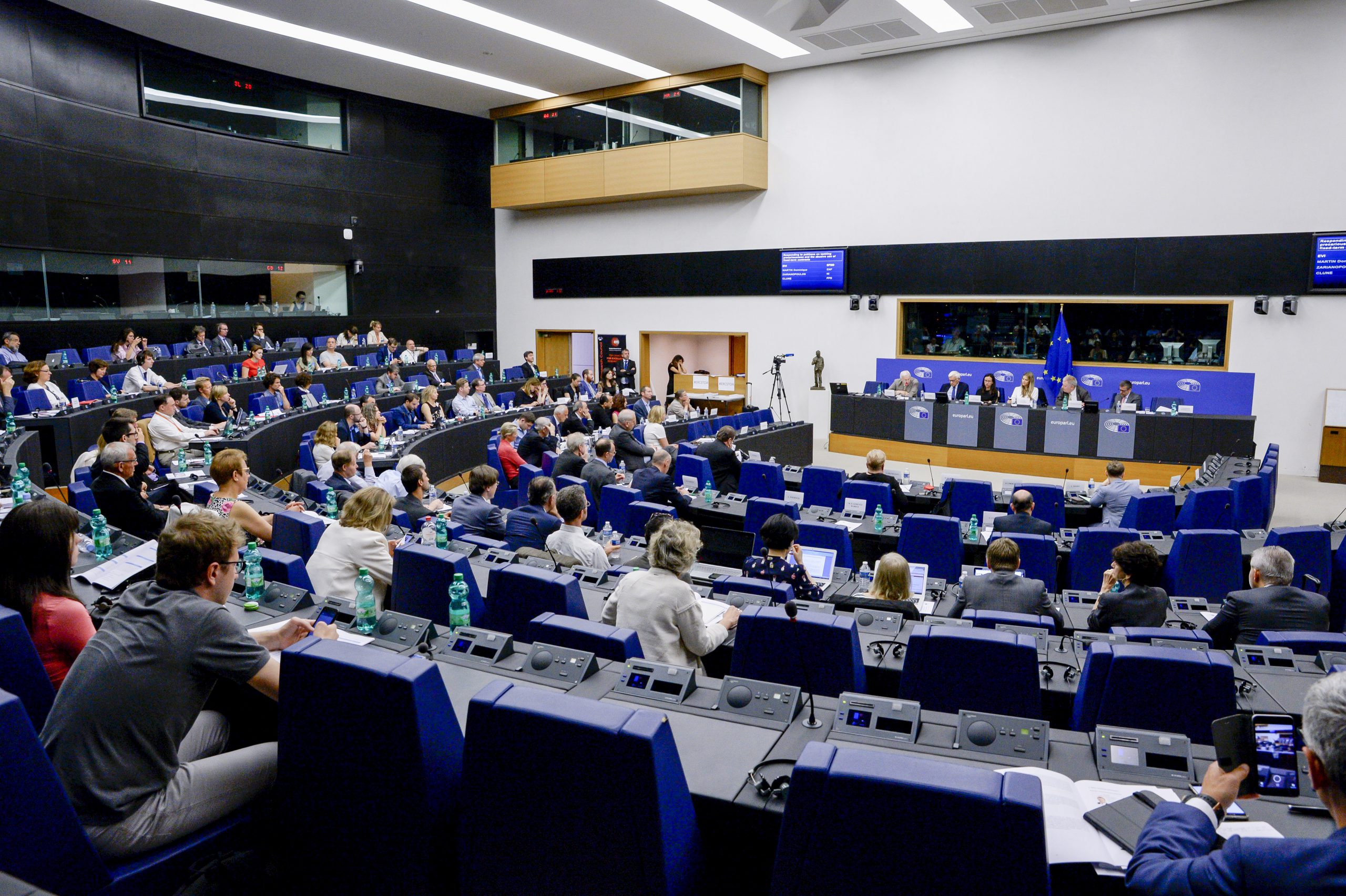Written by Nera Kuljanic,
 Scientists and Members of the European Parliament recently got together at the European Parliament in Strasbourg. The aim of the event, organised jointly by the Science and Technology Options Assessment (STOA) Panel of the European Parliament (EP) and the European Research Council (ERC), was to showcase Europe’s research and innovation efforts through programmes such as Horizon2020 and one of its most successful initiatives, the ERC. The event also aimed at stimulating exchanges on the role of fundamental research in designing the future of Europe. The event was very timely, as it took place just a week before the European Commission (EC) announced its proposal for Horizon Europe, the next research and innovation framework programme, due to start in 2021.
Scientists and Members of the European Parliament recently got together at the European Parliament in Strasbourg. The aim of the event, organised jointly by the Science and Technology Options Assessment (STOA) Panel of the European Parliament (EP) and the European Research Council (ERC), was to showcase Europe’s research and innovation efforts through programmes such as Horizon2020 and one of its most successful initiatives, the ERC. The event also aimed at stimulating exchanges on the role of fundamental research in designing the future of Europe. The event was very timely, as it took place just a week before the European Commission (EC) announced its proposal for Horizon Europe, the next research and innovation framework programme, due to start in 2021.
The event attracted 14 Members (including Industry, Research and Energy Committee Chair Jerzy Buzek) and 22 researchers funded by the ERC, Commissioner for Research, Science and Innovation Carlos Moedas and three Nobel Prize winners, among other participants. In addition, EP President Antonio Tajani, EC Vice-President Andrus Ansip and Bulgarian Minister of Education and Science Krassimir Valchev took part in the high-level science-policy debate organised the day before.
Building bridges between science and politics
Science and technology are more and more part of our everyday lives and even part of who we are. A lot of issues coming before policy-makers and politicians have a scientific or technological dimension and can be extremely complex. In addition, policy-makers need to design research and innovation programmes that will best respond to the opportunities and challenges that Europe will face over the next decade and beyond. So how do we know what these opportunities and challenges are, and how can we prepare a programme of scientific research that will deliver a meaningful response to them at the European level?
Collaboration is the answer: researchers and experts from different domains must work together, and policy-makers need to make sure the issues are put on the agenda and design policies which stimulate progress for the benefit of the whole society.
“ERC is the best thing that ever happened in Europe for the quest for knowledge”. #Nobel laureate, ERC grantees Jean-Marie Lehn speaks to @Europarl_EN. “Without basic research there is no progress” @EP_ThinkTank https://t.co/5SmnWsUmHe
— ERC Europe (@ERC_Research) May 31, 2018
“ERC is the best thing that ever happened in Europe for the quest for knowledge”. #Nobel laureate, ERC grantees Jean-Marie Lehn speaks to @Europarl_EN. “Without basic research there is no progress” @EP_ThinkTank https://t.co/5SmnWsUmHe
— ERC Europe (@ERC_Research) May 31, 2018
Terrific debate on Science and Communication, Science and Society Engagement for Social Innovationa and Social Impact @ERC_Research #ERCSTOA. Here the link to our piece coming straight from #Villaverde https://t.co/fcjm7CBIaw pic.twitter.com/1nzPKpi4y8
— Manuel Franco (@mfranco_uah) May 31, 2018
Are you already working alongside a #robot? #Digital transformation is going to affect all our workplaces – policymakers ask scientists what the impacts might be at #ERCSTOA @ClareMoodyMEP @EvaKaili @PaulRuebig #STOA pic.twitter.com/hRNIlQsm08
— EP Research Service (@EP_ThinkTank) May 30, 2018
‘Don’t be shy about what you do!’
Opening the event, Eva Kaili (EL, S&D), STOA Chair, emphasised once again that Members need to have access to the scientific evidence when working on different issues and how much they value interactions with scientists like this one. To emphasise the need for making such exchanges a regular practice, Professor Jean-Pierre Bourguignon, ERC President, went on to point out the differences between the two worlds: science needs time, patience and perseverance, while politicians often think and act on shorter time-scales, and the two worlds seem to speak different languages.
Commissioner Carlos Moedas made a link between the exploration of the world in the 1400s and the world of research. Highlighting some of today’s remarkable discoveries by European researchers, which were hardly publicised in the media (graphene, 7 Earth-like planets orbiting a star), he told the scientists ‘Don’t be shy about what you do!’ and emphasised the importance of science communication in raising awareness and excitement about scientific progress and the potential of its discoveries. His words were echoed by Professor Jean-Marie Lehn, co-recipient of the 1987 Nobel Prize in Chemistry, who invited young people to embrace a career in science: ‘Science should build bridges between disciplines and generations … It will shape the future of humanity … Participate in this!’
From rethinking the role of the car to engaging citizens through science
Besides the line-up of distinguished speakers, the highlight of the event were the parallel exchange sessions during which MEPs, ERC grantees and other participants discussed techno-scientific topics of interest to them and/or linked to their ongoing work. The exchange sessions were organised around the following topics: modern energy solutions, eco-efficient transport, sustainable management of natural resources, potentials and challenges of the information society, health and life sciences, and science policy, communication and global networking.
A more detailed account of the event is available in the report. A short video clip about the event is available here. To keep up to date with STOA activities, follow our website, the EPRS blog, Twitter and the Think Tank pages.
















[…] Source Article from https://epthinktank.eu/2018/07/10/shaping-the-future-of-europe-investing-in-young-researchers/ […]